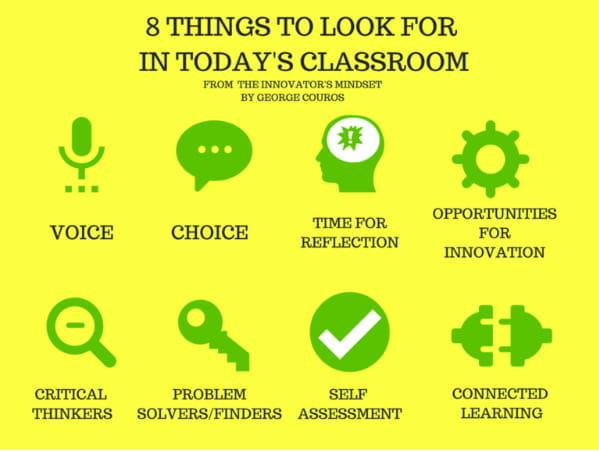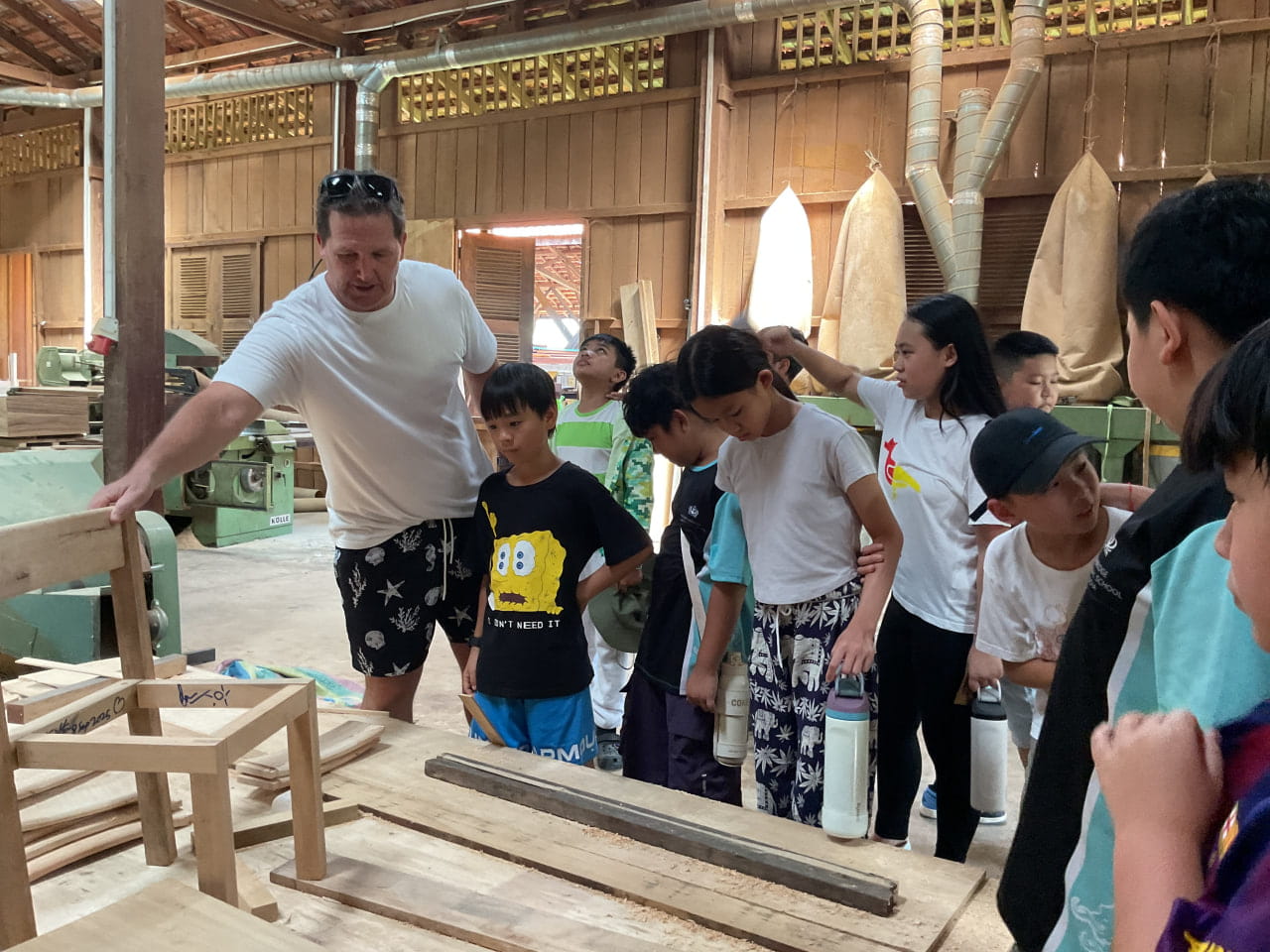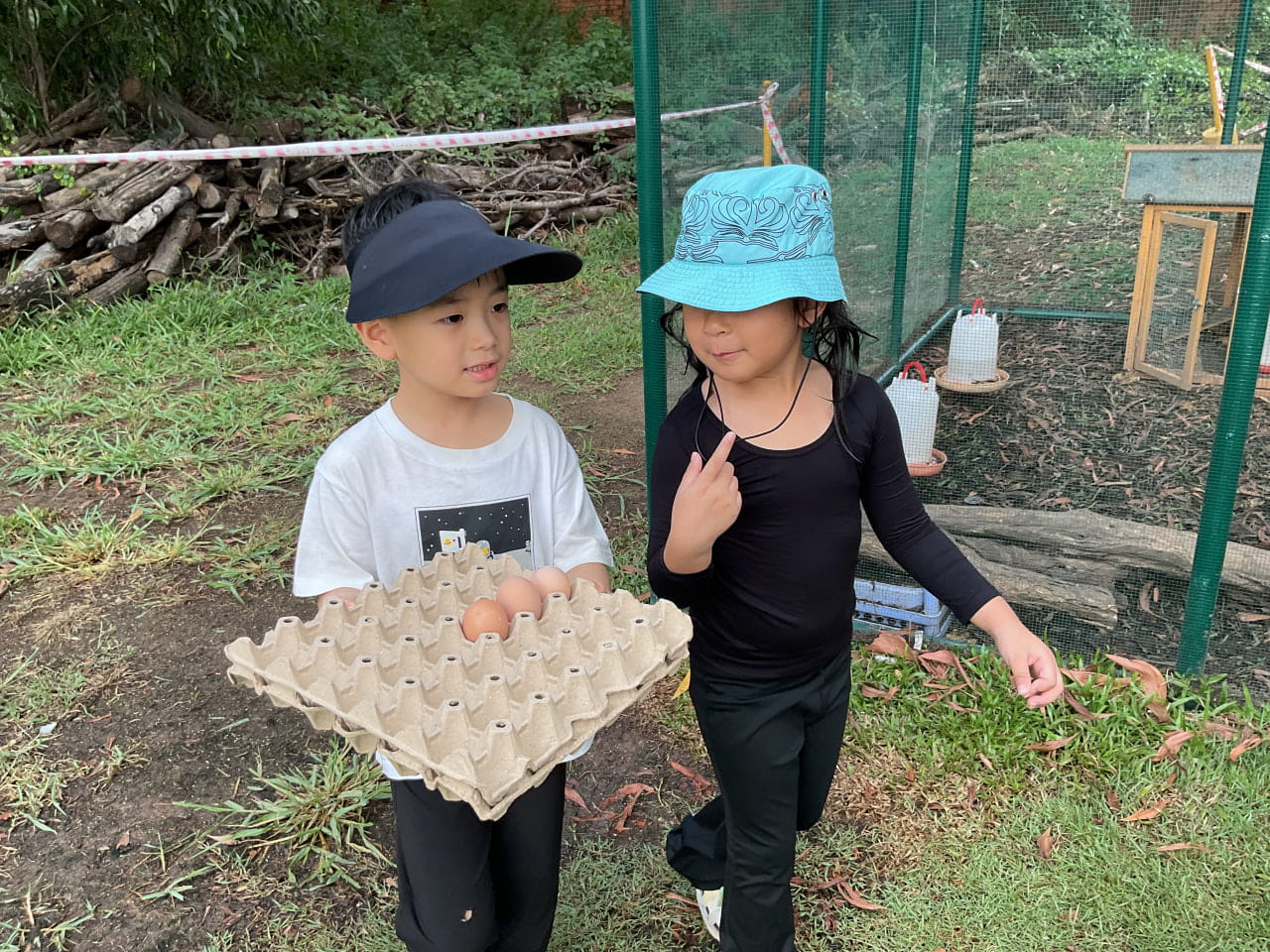Eight elements necessary to develop innovative thinkers In our preparations at the start of the school year, I was reminded of a blog post I read a few months ago written by George Couros - author of the book "The Innovator's Mindset". In his post, he discussed the eight elements he regarded as necessary in today’s classrooms in order for students to develop the dispositions and literacies required to succeed.
In our preparations at the start of the school year, I was reminded of a blog post I read a few months ago written by George Couros - author of the book "The Innovator's Mindset". In his post, he discussed the eight elements he regarded as necessary in today’s classrooms in order for students to develop the dispositions and literacies required to succeed.
I have been reflecting on how we have included these elements in our learning environments and structures here at Northbridge, and have listed these connections below:
Voice
During the last two weeks, students have been involved in setting up their classrooms and have discussed together what the essential agreements will be for them as a learning community. One lesson I observed yesterday had students deciding on how Dojo points would be allocated for homework. Students discussed the various options, listed a few that they felt were reasonable, and then held a vote. Giving students an authentic voice in their classes allows them to understand that their opinion matters - which is an important part of them becoming adults who will help make this world a better place.
Choice
Through the structure of the PYP and the ongoing work of our teachers, students have the freedom to choose different areas that they would like to focus on during a unit. However, this opportunity to make choices is not limited to work in classes, but it is also seen in other areas. In Grade 2, students have a homework Bingo sheet which allows them to choose which tasks they would like to complete during the week as their homework. This opportunity to choose helps them develop the ability to consider options and consequences before making a choice - a skill that is needed throughout our lives.
Time for reflection
This year we have included time in each class schedule for students to focus on reflection. This allows students to consider their learning and set goals to improve their learning in the coming week. It is also a time for them to celebrate what they have achieved and understand why they were successful in some things and not others. This degree of self-awareness will help them develop reflective thinking that will have a positive impact on their lives into the future.
Opportunities for innovation
Not only do we have challenges that are posed through the Global Campus to encourage innovative thinking in our students, but here at Northbridge we are fortunate to have the Maker Space available to students to work in. Teachers are encouraged to consider how they can use this space and its resources to help develop innovative thinking in our students. An example of this is in Grade 5 where the students are working on a designing an appendage that will help a crippled dog move more easily.
Critical thinkers
One of the strengths of the PYP is its focus on concept based learning over topic based learning. What this means is that any area of focus is connected to a bigger concept. Helping students identify these concepts and their relationships to the units of inquiry strengthens their ability to think critically and flexibly. This is also part of other lessons such as a typical maths lesson during which students consider the various ways they can solve a problem and then discuss with each other which strategy would be best and why. The debate around these types of questions allows students to analyse their options and develop their critical thinking skills.
Problem solvers/finders
Innovation is inextricably linked with problems. The more a person can identify problems, the more they can come up with solutions to the problems. One of the challenges in this year’s Summer Bingo was for students to design an invention that could help them do something at home or school. To complete this, students needed to first identify a problem and then consider a solution.The process of designing and refining is one that all students are encouraged to go through while working in class - whether it be editing a piece of writing, checking a maths solution or working on an end of unit task.
Self Assessment
Students and teachers are involved in developing the criteria used for assessing work. This allows students to clearly understand what success will look like. This also gives them the chance to pause and reflect on what they have produced in light of these criteria. Students are given time to do this self assessment and the opportunity to improve their work so that they can submit work that they are proud to share with others.
Connected Learning
Northbridge’s eLearning plan has a focus on strategic integration of technology to redefine learning. Our commitment to getting the most out of our IT tools is seen in the thoughtful integration of devices in classes. This integrated learning allows students to not only explore content related to a subject, but also gain fluency in communicating their ideas through using various digital platforms. This year we have also appointed Ms Cynthia Gayoso as our IT leader to help lead conversations with teachers around how technology can be integrated into lessons and units.







